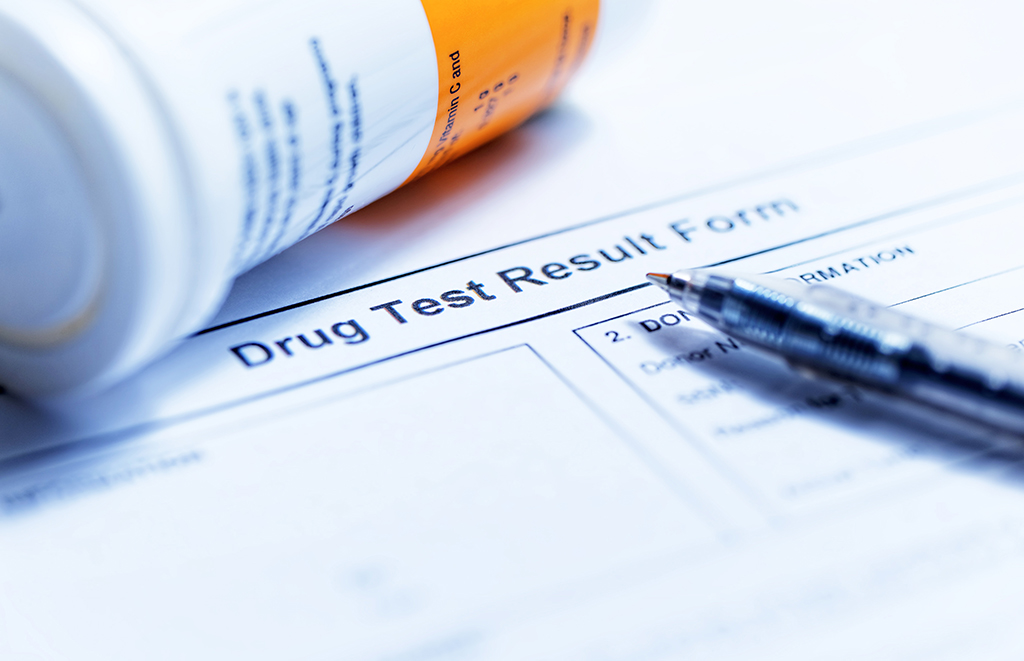Reviewed By:
Adderall can remain in your system for 3 days after you’ve taken it, but an Adderall crash can begin within hours after your last dose. When you stop taking Adderall, your body experiences intense withdrawal symptoms. You can ease your recovery naturally with the tips below.
Table Of Contents
Known as a “study drug,” Adderall is widely used for treating attention deficit hyperactivity disorder (ADHD). A controlled substance consisting of amphetamine and dextroamphetamine, it can give you heightened focus and energy — but only for a while. One of the biggest side effects is the Adderall crash. You can expect to feel sleepy, listless, depressed and lethargic in the days after your prescription ends, and sometimes even sooner. Many people also experience intense Adderall cravings. If you are wondering how long Adderall stays in your system and how you can better cope with the comedown, here’s what you need to know.
Why the “Adderall Crash” Happens and What It’s Like
As a stimulant, Adderall increases energy and heightens concentration for those who need it. Unfortunately, many people also take the drug without a prescription, believing it will aid in work or school. When you stop taking Adderall, whether or not you have a prescription, this energy “rush” subsides. In its place, you may feel exhausted, fatigued and depressed. After a few days, your symptoms may also include body aches, increased appetite, mood swings and cravings. These symptoms can persist for up to three months, although most people start to feel better within a few weeks. Here are more common symptoms of Adderall comedown:
- Intense frustration or irritability
- Difficulty concentrating
- Interruptions in sleep
- Feelings of worthlessness or despair
- Anxiety
- Loss of interest in hobbies
- Desire to be left alone
Have questions about Adderall addiction?
Ask a question in the chat box below.
How Long Adderall Stays in Your System
In most cases, Adderall effectively clears a person’s system in a few days. Adderall’s half-life is between 9 and 14 hours, which means that after a full day, half the drug is still in your system. It continues to make its way out of your body as time passes, although you’ll feel the effects of an Adderall comedown much sooner.
Many fators can cause Adderall to stay in your system for longer or shorter amounts of time. Your body composition, when and how much you eat, the pH levels in your digestive and urinary tracts, how well your organs function, the dosage, and how long you’ve used Adderall all play a role.
Additionally, even if Adderall has cleared your system, that doesn’t mean that certain drug tests can’t detect it.
Adderall Drug Tests
There are several drug tests that can detect the presence of Adderall. Each one can determine whether a person used Adderall within a specific period of time. Some work even after Adderall has cleared your system.
Saliva and blood tests usually only pick up Adderall while it’s still in your system. Saliva tests can detect Adderall about 20 minutes after ingestion and works for up to 48 hours. Blood tests detect Adderall within 12 to 24 hours of a dose.
Urine tests can detect Adderall up to 7 days after it was used. This is because the urinalysis looks for metabolites associated with Adderall use, and those can stay in your system for longer than the drug itself.
Hair tests have the longest window for detecting Adderall. It looks for metabolites in hair follicles, extending the amount of time a person may end up with a positive result. Usually, it takes about one week after taking Adderall for the metabolites to be detectable in a hair follicle. The drug can be detected for up to 90 days after that.
10 Ways to Cope with Adderall Comedown
Here are 10 ways to minimize the effects of an Adderall “crash” without over-the-counter medicines or outside treatment. Be mindful, however, that a supervised detox is the safest way to come down from any drug.
1. Follow Your Doctor’s Instructions
When your doctor ends your prescription, follow his or her instructions to the letter. Often, a doctor’s goal is to make the process as tolerable as possible, so it benefits you to listen. If you start having trouble, reach out before making any changes to the plan. Never take the drug without a prescription.
2. Remember, Adderall Comedown Is Temporary
Remind yourself that any Adderall comedown symptoms you experience won’t last forever. Moreover, the longer you stay away from the drug, the less intense your symptoms become. By sticking it out, you aren’t just heading toward recovery, but with each day, you’ll feel a little bit better, too.
3. Focus on Hydration and Nutrition
Coming down off of Adderall can have a dramatic impact on your appetite and hydration levels. Make sure to drink plenty of water and eat nutritious foods. If you are experiencing any digestive distress, try to eat more small meals during the day instead of three large ones.
4. Practice Self-Care
Indulge in soothing activities and self-care to help you manage any bad sensations you might experience. Drink herbal teas, relax in warm baths, meditate, do yoga, or take part in other activities you find rejuvenating.
5. Prioritize Sleep
Stopping Adderall can impact your sleep quality. Make sure your space fosters higher-quality sleep by keeping the temperature cool, blocking out light, and using a white noise machine if you need sound control. Avoid using your phone near bedtime and turn on “do not disturb” when you sleep. Additionally, try to follow a schedule. Going to bed and waking up at the same time each day can help your body develop a rhythm.
6. Limit Other Stimulants
Nicotine, caffeine, and other stimulants can make Adderall crash symptoms harder to manage. They can also promote anxiety. As a result, it’s best to avoid them, particularly if you’ll be heading to sleep shortly.
7. Take a Mental Break
Coming down from a stimulant like Adderall can make it hard to maintain focus. When you have the option, choose low-focus activities over those that require deep concentration. Take time off work or school if you can, and give yourself extra time to complete tasks.
8. Get Some Exercise
Physical activity can help you push through withdrawal symptoms while giving you a boost of the feel-good hormone serotonin. Exercising also gives you a chance to get fresh air and Vitamin D, which can also improve your mood. Just make sure to remain hydrated and avoid overdoing it.
9. Use Your Support System
If you’re struggling, reach out to your support system. They can be an ear when you need to talk or a distraction when you want to focus on something different. Plus, you’ll know that you aren’t on this journey alone.
10. Get Treatment
If you are coming down from Adderall after long-term use, professional treatment can be helpful, particularly if you have become addicted. Treatment programs not only help you through withdrawal symptoms, but they also put you on the path toward long-term recovery. Cognitive behavioral therapy, 12-step meetings, and similar options can provide you with additional support, ensuring you feel capable of moving past Adderall and toward a happier, healthier life.
Have questions about addiction?
Call us at 855-430-9426 to speak with a recovery specialist.
Is Adderall Addictive?
Yes, Adderall can be highly addictive. It’s an incredibly strong stimulant, and users may become attached to the feelings and focus they experience when they take the drug.
Additionally, Adderall’s effects can diminish over time. This can lead some to take higher doses to experience the same outcome. At times, addicts may snort or inject Adderall to achieve a better or stronger “high,” increasing the risks of side effects and the potential for overdose.
Overdose is one of the most serious results of Adderall abuse. While the drug has potential dangers even when taken as prescribed, each of the risks increases at higher doses. These risks include heart attack, stroke, and liver failure. Taking Adderall with other drugs or alcohol can increase the risk of overdose.
Adderall may also lead to physical changes in the brain and can lead to the development of mental disorders, including depression or suicidal thoughts.
It’s important to note that not everyone who abuses Adderall is addicted. However, it’s important to watch for the signs. If you feel that you “need” Adderall to function, or make using Adderall a priority at the cost of your family, friendships, job, or financial well-being, it’s time to seek help treatment.
How to Get Help
There are many options for people who want help with Adderall addiction or Adderall abuse. Inpatient rehabilitation provides medical support during withdrawal and the advantage of a setting that is temptation-free. Often, detoxing is a challenge for those addicted to Adderall, so it’s wise to have support from a medical professional during that period. Outpatient addiction treatment offers comprehensive treatment with the flexibility to spend evenings at home.
In addition to intensive addiction treatment, you may find that cognitive behavioral therapy, group therapy, and 12-step programs such as Narcotics Anonymous can help you develop healthy coping mechanisms for stress as you recover. It can be difficult to adjust as your brain heals from Adderall addiction; ongoing therapy can help you stay on target and adapt.
Although many people use Adderall safely as prescribed, it is important to remember that Adderall is, in fact, a prescription drug. Using it without the guidance of a doctor, or abusing a prescription, can lead to harmful side effects and addiction. If you have used Adderall to improve your concentration, manage stress or increase your energy, it is important to know that there are healthier — and more effective — ways to achieve all of these goals. Treatment for Adderall addiction can help you find them.
Do you rely on Adderall to concentrate? You don’t need to face addiction alone. Call us at the number below or ask a question in the chat box to find a treatment program that fits your life.
Have questions about addiction?Chat with one of our recovery specialists now.


